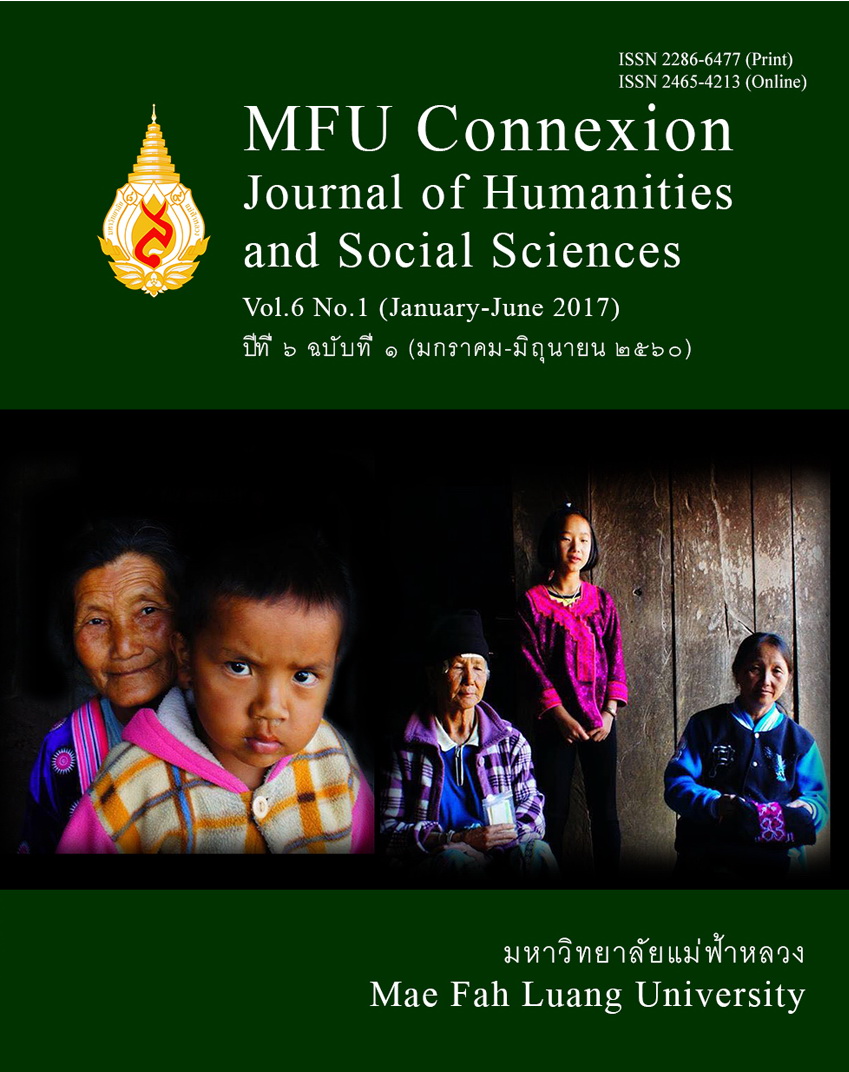Organizational Development Using the Dimension of Culture: A Case Study of the Marine Police Division of Samut Prakarn Province
Main Article Content
Abstract
This research aims to investigate: (1) the background of organizational culture for the marine police division of Samut Prakarn Province; (2) the conditions and problems of organizational culture and guidelines for the development of organization of the marine police division of Samut Prakarn Province using culture; (3) a model of organizational development using culture for the marine police division of Samut Prakarn Province. Data was collected from document and field data. The results show that organizational cultural in the marine police is determined by traditional values, patronage and meritocracy. The power comes from the law. A number of problems were found with the organizational culture, including a lack of good recruitment, lack of personnel development and lack of collaboration with other organizations. There are many procedures that cause delays and work is reactive rather than proactive. A model of organizational development using culture for the marine police division of Samut Prakarn Province was developed and named the ‘ABC Culture’. This investigation can be used to resolve problems in organizational management that efficiently conform to the current situation.
Article Details
Copyright
Connexion: Journal of Humanities and Social Sciences has an exclusive right to publish the accepted articles in any form. However, the author retains the following rights:
1. The right to the ownership of the article;
2. The right to use all or part of the article in his/her other works;
3. The right to re-produce the article for personal use or for use in the author’s organisation, in which case the author must obtain permission from Connexion: Journal of Humanities and Social Sciences;
4. The right to make copies of all or part of the work for educational use or for the author’s use in classroom teaching; and
5. The right to include the work (both the preprinted and printed versions) in an institutional repository.
References
Adekola, A. & Sergi, B. S. (2016) Global business management: A cross-cultural perspective, London: Routledge.
Alvesson, M. (2012) Understanding organizational culture, Thousand Oaks, CA: Sage.
Chantavanich, S. (1988) Qualitative research methods, Bangkok: Chulalongkorn University Press.
Cooke, R. A. & Szumal, J. L. (2000) ‘Using the organizational culture inventory to understand the operating cultures of organizations’, in N. M. Askanaszy, C. P. M. Wilderom & M. F. Peterson (eds), Handbook of organizational culture and climate, Thousand Oaks, CA: Sage.
Hofstede, G. (1987) The applicability of McGregor's theories in South East Asia, Journal of Management Development, vol. 6, no. 3, pp. 9-18.
Kantima, S. (2007) Motivation of officers in the Chiang Mai Sub-District Administration Office, Chiang Mai: Chiang Mai University.
Longjit, C., & Pearce, D. G. (2013) Managing a mature coastal destination: Pattaya, Thailand, Journal of Destination Marketing & Management, vol. 2, no. 3, pp. 165-175.
National Economic and Social Development Board. (2012) Summary of the eleventh national economic and social development plan (2012-2016), [Online], Available: https://www.nesdb.go.th/nesdb_en/ewt_w3c/ewt_dl_link.php?nid=4165 [18 July 2016]
Netphisalwanich, W. (1997) A study of organizational culture in nursing homes, PhD Thesis, Chulalongkorn University, Thailand.
Notesupha, P. (2005) The use of power by administrators in organizational cultures that is effective for the administration of expanded opportunity schools, PhD Thesis, Sakhon Nakorn Rajabhat University, Thailand.
Office of the Public Sector Development Commission. (2008) Strategic plan for the development of Thai government (2008-2012), [Online], Available: https://www.opdc.go.th/uploads/files/Strategies51-55.pdf [18 July 2016]
Pethcharamunee, S. (1989) The impact of organization on personal development, Bangkok: Thammasart University.
Phonhan, T. (2000) Motivational factors in the work of government employees of Mahasarakham University, Mahasarakham: Mahasarakham University.
Prada, J. (1996) The relationship between personal factors, creative organizational culture, the readiness of the organization and the strength of the organization according to professional nurses at psychiatric hospitals, PhD Thesis, Chulalongkorn University, Thailand.
Sa-Nguanwonngwan, W. (2007) Organizational management and behavior, Bangkok: Peer Translators.
Schein, E. H. (1992) Organizational leadership and culture, San Francisco: Jossey-Bass.
Suphap, S. (2000) Thai society and culture, Bangkok: Thai Wattana Panich.
Sutheewasinnon, P., Hoque, Z., & Nyamori, R. O. (2016) Development of a performance management system in the Thailand public sector: Isomorphism and the role and strategies of institutional entrepreneurs, Critical Perspectives on Accounting, vol. 40, pp. 26-44.
Tangchansangsri, S. (2002) The relationship between emotional intelligence and creative organizational culture of professional nurses in Singburi Hospital, PhD Thesis, Burapha University, Thailand.
Thammakun, S. (2008) Organizational culture of Chiang Mai Municipality, Chiang Mai: Chiang Mai University.
Thanawattana, M. (1996) Business administration and management, Bangkok: Teerapong Printing.
Urapheephattanaphong, K. (2002) The principles of good governance and the management of government enterprises: A case study of companies listed on the Stock Exchange of Thailand, PhD Thesis, National Institute of Development Administration, Thailand.
Wiruchniphawan, W. (2004) Administration and management of natural resources: The role of local organizations, Bangkok: Odeon Store.


